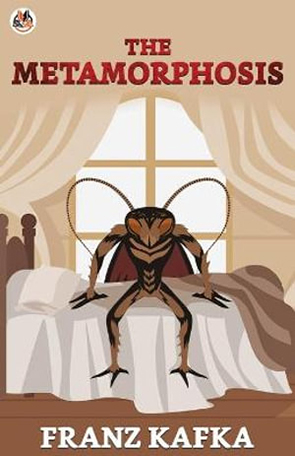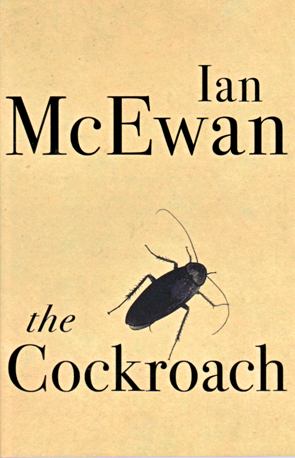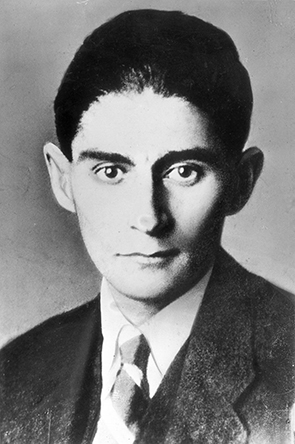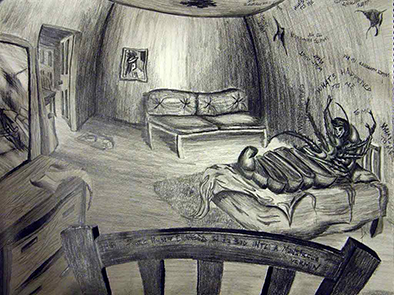“One morning, when Gregor Samsa woke from troubled dreams, he found himself transformed in his bed into a horrible vermin.” Thus opens Metamorphosis, the longest work that Franz Kafka ever completed. The object in this opening sentence has variously been translated as “gigantic insect”, “enormous bug”, “gargantuan pest”, and “monstrous cockroach” by different translators. The world Ungeziefer in German literally meant “unclean animal not suitable for sacrifice” in the early medieval German but colloquially came to be used to describe nasty bugs by the time Kafka wrote Metamorphosis.
After his metamorphosis, Gregor Samsa is not quite worried about himself. He does not express any shock at this development and quickly tries to get up from his bed and head to work before his employers deducts his pay or dismisses him from service. Throughout the book not for a moment does he wonder why such transformation has befallen him and what he could do to reverse it. The foremost thought on his mind is the plight of his family now that he is no longer a functioning human being. He feels pity for his overworked mother and sister and blames himself for not being able to work.
The family is initially disgusted by the change in Gregor which is quite a sane reaction. Imagine a cockroach the size of a small crocodile slithering about the floor of your house. Gregor is beaten back into his bedroom by his father when he first sees him. After this the family no longer wants anything to do with him. The former hardworking son is now confined to his bedroom. No one enters that room, at least not unless Gregor is hiding under the couch. Now the family has to earn. The father takes a job, the mother sews and the daughter becomes a salesgirl. The servants are dismissed and tenants are brought into the spare room. While in the beginning Gregor's transformation is only physical, isolation begins to complete this process for his mind. He begins to like his new body and slithering about on the walls and the ceiling.
All the characters act out their subconscious feelings and prejudices in their behaviour towards Gregor. The parents absolutely do not wish to set eyes upon him. The sister tries to provide him small comforts in the beginning but becomes agitated by him once she starts working. For the family, he is a burden that they must carry. Is the story a metaphor for depression or burnout resulting from overworking? Is it an allegory for how a hardworking person supporting his family is maltreated when he becomes disabled in some way? Perhaps, but it would not quite in the spirit of the work to look for symbolism or allegory.
Vladimir Nabokov, in his lecture on Metamorphosis, remarks: “No matter how keenly, how admirably, a story, a piece of music, a picture is discussed and analysed, there will be minds that remain blank and spines that remain unkindled.” It seems there is no hope for me. I did not enjoy reading this story. There might be a deeper meaning to the story but it makes no sense for a general reader to go into the subtext when there is no joy in the text itself. In my opinion, the work is too long for its own good. Unlike in his short story ‘A Country Doctor’, in which each illogical occurrence is followed by the next for the entirety of its three pages, there is not much substance to carry this story along and it begins to drag its feet with nothing new to say. The initial shock gives way to a lot of he did this and she did that and they felt repulsed by their son. There is an initial exhilaration in the opening circumstances but the story fails to enthral.
Related Books

 RSS Feed
RSS Feed Facebook
Facebook Instagram
Instagram YouTube
YouTube Subscribe to our Newsletter
Subscribe to our Newsletter







No one has commented yet. Be the first!